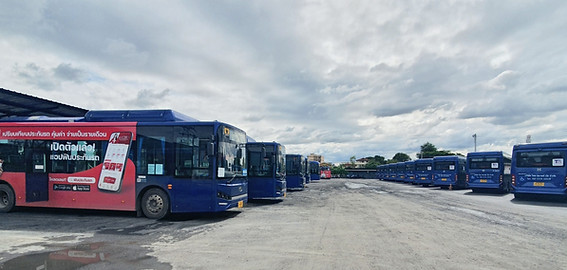
Thailand
Thailand places a high priority on climate change as it is one of the nation's key challenges to growth and development. In the most recent NDC, Thailand pledged to unconditionally reduce greenhouse gas emissions by 20% by 2030 and unconditionally reduce greenhouse gas emissions by 25% with foreign aid by 2030. The country anticipates to peak its greenhouse gas emissions in 2030 to reach carbon neutrality by 2065.
Important Announcement
Due to current political uncertainty, our concept in Thailand is currently on hold. We remain committed to providing capacity building and enabling knowledge sharing between stakeholders in Indonesia and Thailand. For resources and information that can assist project developers and local stakeholders in the development of further concepts, we invite you to visit our Article 6 knowledge page.
Krabi, Thailand, is located on the southwestern coast of Thailand along the Andaman Sea with an area of 4,709 km with a population of 32,644.
Krabi was selected as a focal city due to its anticipated population growth, influence as a tourist destination, and potential for emission reductions within the transportation sector.
Krabi,
focal city
Article 6 Activity Concepts
The following activity concept was designed to assist the Krabi city and provincial government in leveraging international climate finance through Article 6 to implement sustainable development projects that will be self-sustaining and scalable, financed through the sale of emission reductions.
Electrification of small public tourist vehicles

The entire province of Krabi currently utilises diesel-run vehicles for tourism purposes. These vehicle types include modified pickup trucks, 13-passenger vans and 25-passenger minibuses. Since Krabi itself is small in regard to its urban transportation demands, this pilot project would aim to electrify buses between the city and the outlying areas of the province as well. As demand for tourism grows, the need for an electric transportation alternative becomes an increasingly appealing. Currently, the government of Thailand has indefinitely instituted a 30% tax exemption policy to increase incentive for bus operators to electrify their fleets.


Members from Perspectives Climate Group visited an electric bus charging facility in Bangkok, Thailand, to understand and identify the availability and operation of current electric bus charging technology. The charging station in Bangkok operates twelve charging stations for 300 electric buses.
Through identification of three key bus routes within Krabi (contributing to 99.5% of emissions from public bus transport), this activity aimed to electrify 44 vehicles for an emission reduction total of 480 tons of CO2e per year.
Dedicated renewable energy would be provided through an installation at or near the province bus depot.
